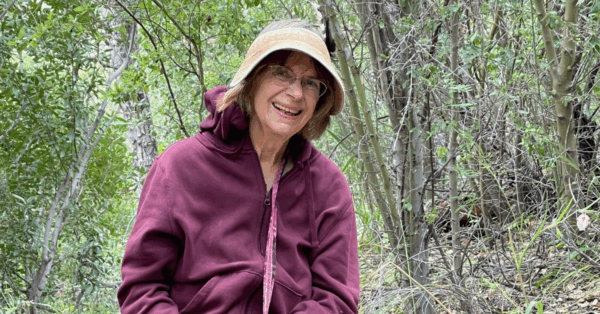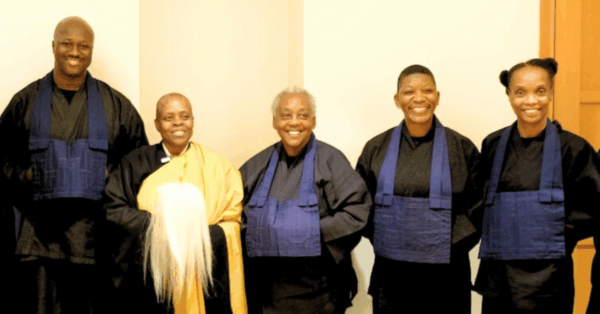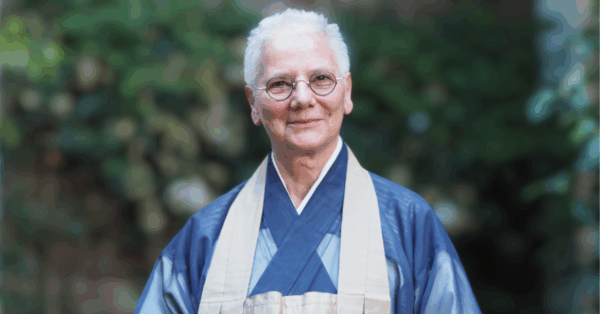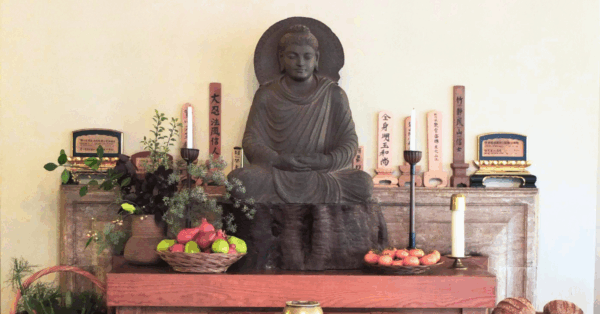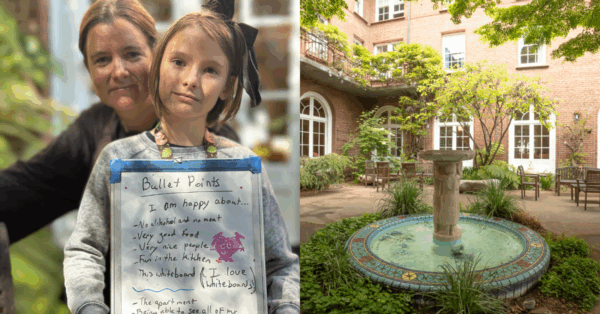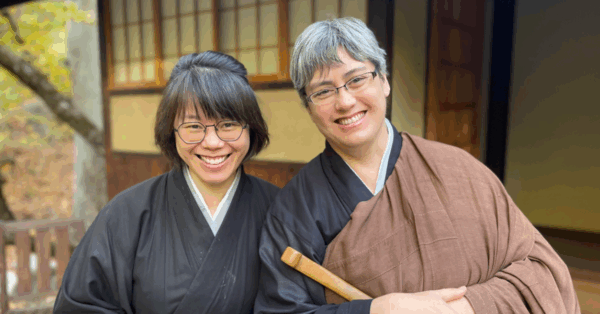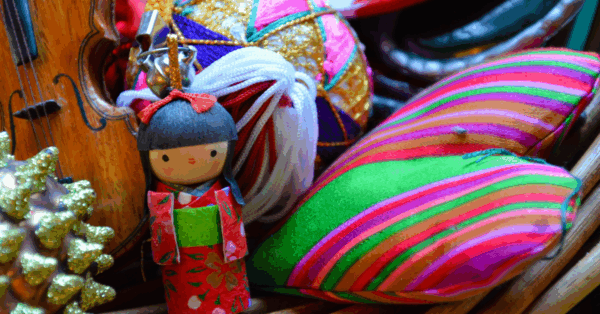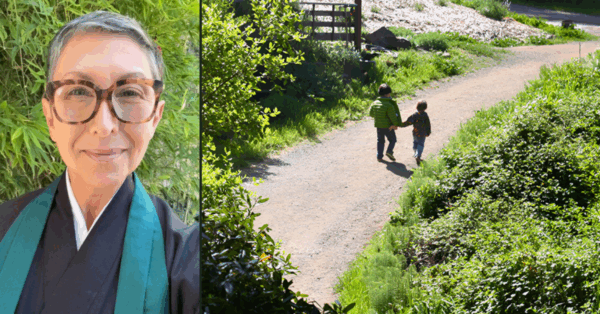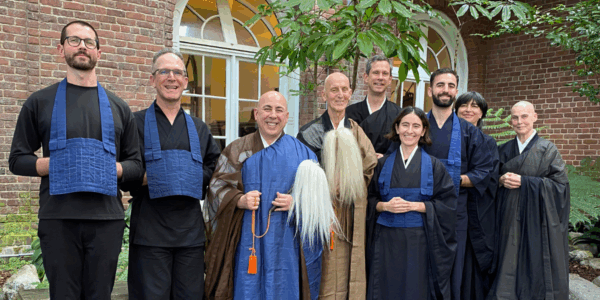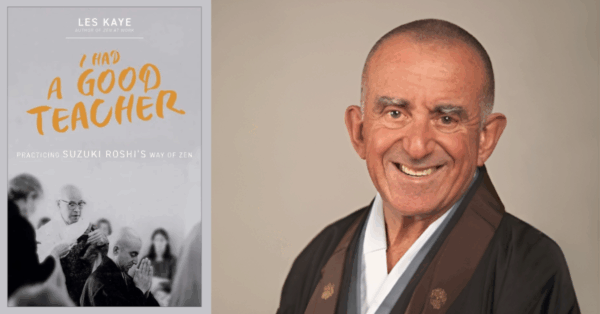by Amity Bacon, Writer and Zen Practitioner at San Francisco Zen Center
Taking stock of what is essential and creating a clearer, more organized way of life is something that Andrew Mellen knows a little something about. Called the “most organized man in America,” he has spent years helping others “unstuff” their lives.
And as a Buddhist practitioner, Andrew studied Rinzai Zen for years, and has studied with Tenzin Robert Thurman and Sharon Salzberg. Andrew will co-lead with Kanzan David Zimmerman the one-day workshop “The Heart of the Matter: More Love, Less Stuff” at City Center.
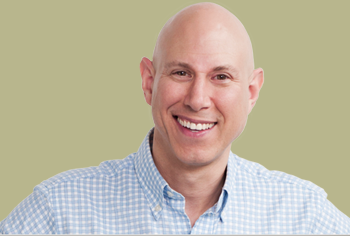 Amity: What “stuff” do people find difficult to get rid of?
Amity: What “stuff” do people find difficult to get rid of?
Andrew: The things that people struggle with pretty consistently are: paper, email and digital files, photographs, sentimental objects, clothing, books, and electronics. Any place in western or developing culture where stuff exists in excess, those are the kinds of stuffs that people are struggling with.
Amity: You mention emails, but that doesn’t strike me as clutter or a burden. Digital files don’t take up physical space.
Andrew: It’s the volume of emails and the sense of obligation and responsibility people feel to respond to them. It ties into time management. But there’s also just the sheer volume of them, clogging up an inbox versus creating subfolders and migrating email. Being able to interact with email in a streamlined and efficient way is a huge disorganization challenge for people.
Amity: Your upcoming workshop is titled “The Heart of the Matter: More love, less stuff.” What does love have to do with it?
Andrew: Love has everything to do with it. It can take the shape of a misguided or uninformed pursuit of love through material things. That’s the acquisition or the accumulation of things in the hopes that they will love us in the way that we love them. But, they are inanimate. So, they are incapable of reciprocating our feelings. I think that there’s love on that level.
and available.”
Another level of love is the sense that we are communal creatures. We work better when we are able to give and receive love consistently. There is sometimes a desire to fill a hole in us; it’s one of the reasons we sit (zazen). It’s a curious paradox, perhaps, of meditation—that we are trying to get empty in some ways but at the same time often busy trying to fill that emptiness with stuff. So there’s a curious duality or paradox there.
A third example of [what love has to do with it] is that we often are distracted from love by the things that surround us. The caring for, the interacting with, and the accumulation of material things keeps us from the sweet spot where we are our best selves – most loving and generous and available. So, spending more time being our best selves and less time interacting with office supplies or electronics seems a worthwhile pursuit.
Amity: How does your Buddhist background inform your professional work?
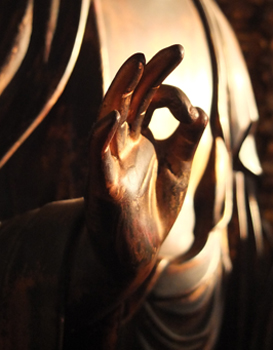
Photo by Shundo David Haye
Andrew: Mindfulness, consciousness, being awake, being in a subjective/objective reality around what I’m interacting with or what I’m doing, and being in alignment with my core values, all of these things are an outgrowth of my spiritual practice. Being as alert and awake as I possibly can be for what I’m about to experience in the moment, so that I can participate fully with the least amount of judgment and interference, is one of the things I’ve learned from sitting. I feel that it’s something I can bring to the work.
For my clients and students, when they can get still and quiet—whether they call that mediation or not— if they can get still enough and get clear and in alignment with what they value, then the choices that they’re going to make about the stuff around them is going to be easier for them. The stillness is where the information comes up.
Amity: How can your workshop create a spirit of honesty and integrity at work?
Andrew: In dealing with the stuff, students can get to the stuff behind the stuff. In doing that, there is hopefully a greater sense of clarity, of being in integrity with one’s self, and of telling the truth. Because it doesn’t matter to me why you have your grandmother’s tea cup in your life—if it matters to you, keep that. It becomes clutter when it ceases to serve you. I talk about offering people comfort, convenience, or beauty in their lives, and that those are good benchmarks to hold up against to determine if the stuff belongs in your life. If your grandmother’s tea cup does that for you, we don’t need to label that clutter. If it’s lying in the corner of your living room, along with some old magazines and some recipes and some books and USB cables, then it might have become clutter.
matter to you.”
Part of the process of being in the workshop is getting to explore and examine: what am I holding on to? What do these objects mean to me? I think that stuff is a superficial manifestation of something. Through exploration and getting clear about the manifestation and getting things out of your way, you open up a path to the things that really matter to you. You start to understand how you are relating to these things. And, it’s possible that this is how you are relating to other things. So, you can bring this new understanding to bear in your relations to other things, and you can get just as clear and be just as strong in integrity in these other areas of my life. This is one methodology that has universal applications.
Amity: How did you come to realize that you could help other people be more organized?
Andrew: I was co-producing an awards ceremony for the JFK Center for Performing Arts in Washington, DC. One of our awardees was a Noble Peace Prize winner, who asked me if I wanted a job organizing his photographs. That project kept getting rescheduled, and eventually fell through. In the meantime word got out that I organized things, and the referrals starting pouring in. At one point, an accountant was referring to me clients who showed up with duffle bags full of receipts and letters from the IRS saying, “I haven’t filed my taxes in 5 years; I have all these receipts; I’m completely overwhelmed and intimidated. Can you help me make sense of it?”
Every job led to two or three more jobs. This work was coming at me so strongly and so relentlessly that I decided to embrace it full time. The work had an impact on my life, and I could see the impact that it had on other people’s lives. I was actually able to be of use to people in a very primary, direct way, and I was being compensated for that financially and emotionally, spiritually, psychologically. I thought that even though this doesn’t look like what I think I’m supposed to be doing, it feels so present that I should follow it through and see where it leads me. That was 17 years ago. This work engages all of me, all of my interests about being a person, about relationships, about stuff, being present, being mindful, distraction, delusion—all of it. I can learn everything and participate fully in this work that I do.
Amity: What kind of experience can students look forward to on your retreats?
Andrew: I hope people come and enjoy themselves. For as thoughtful as the work is, it’s also fun in that there’s a sense of buoyancy and playfulness in these explorations. If we can’t laugh at the silly choices that we have made historically and recognize with some detachment that we would prefer not to make those choices again, then we’re likely to be unhappy. It really is fun! I have a gas. Partly because the things that people say are hysterical. When they actually have some awareness about some of the things they spend their time doing, when their attention is brought to that, they might cry . . . but it is more likely that they will laugh.
__________
Andrew Mellen and Kanzan David Zimmerman lead the one-day workshop “The Heart of the Matter: More Love, Less Stuff” at City Center. They also lead a three-day workshop, “Getting to What Matters: More Love, Less Stuff,” at Tassajara Zen Mountain Center.


